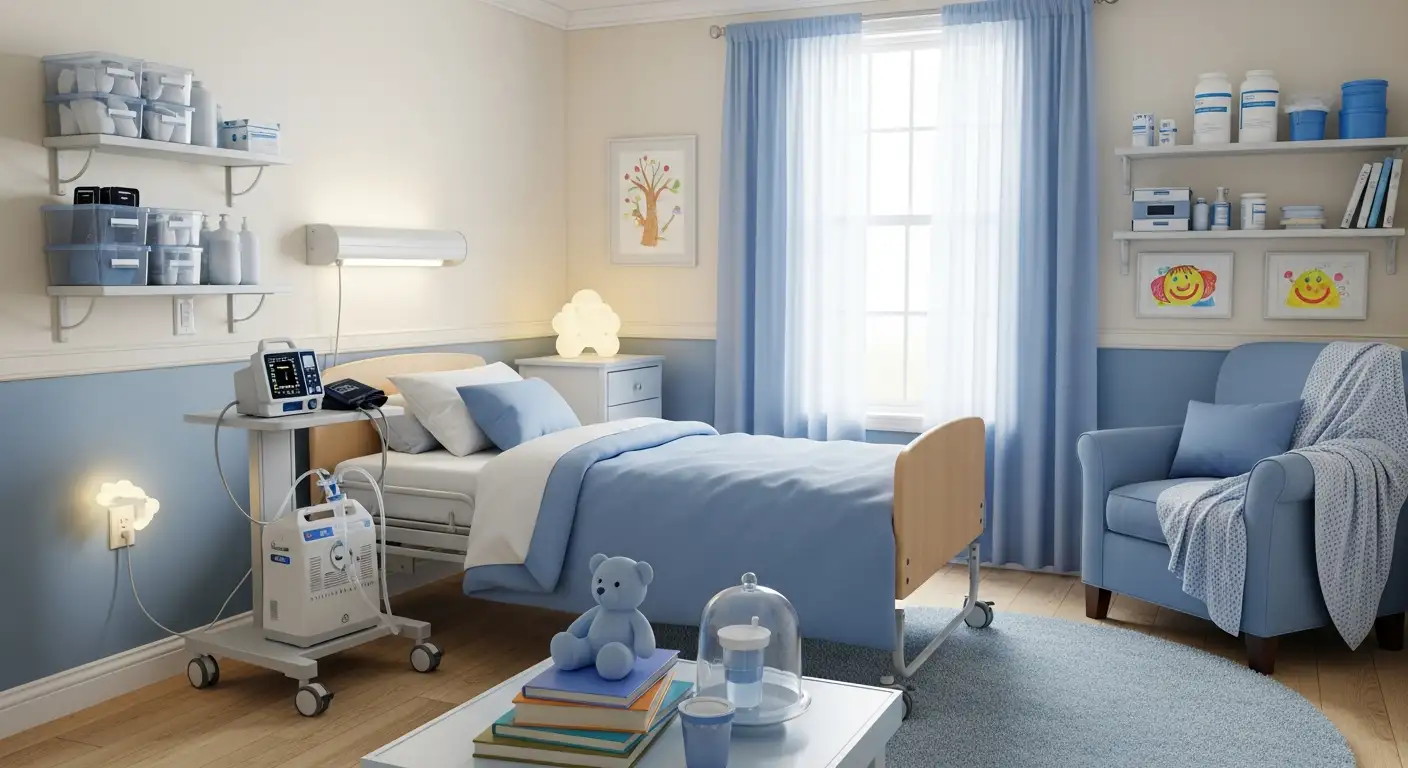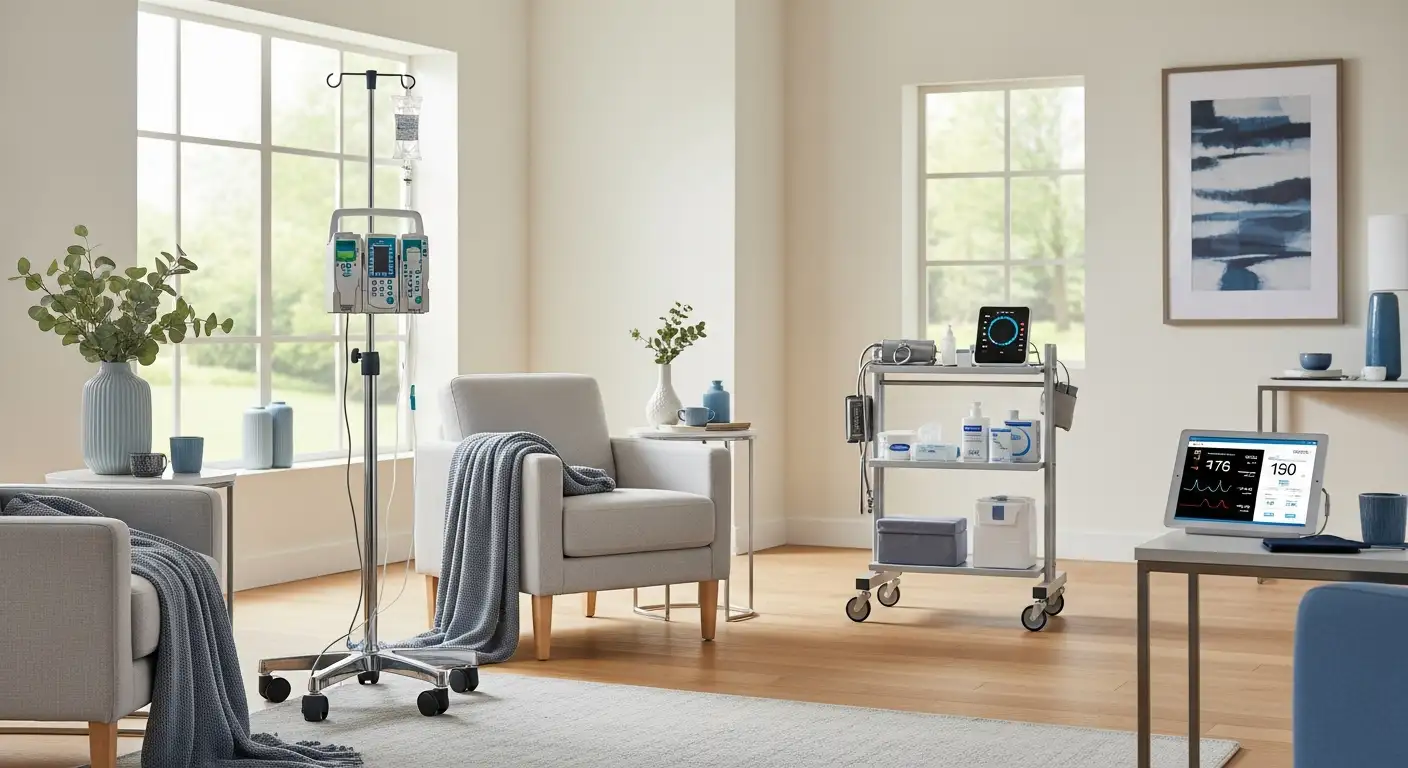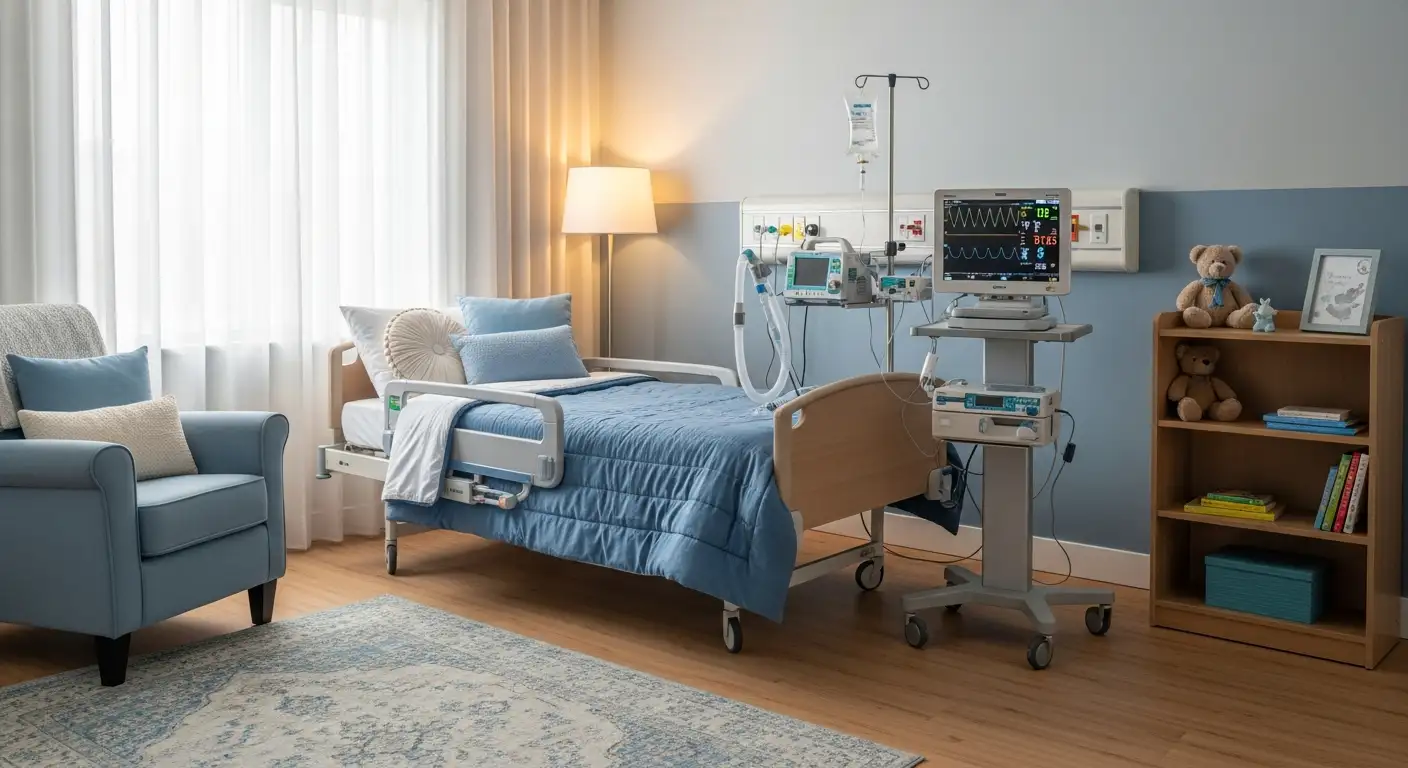Supporting Children with Complex Feeding Needs at Home
Children with pediatric feeding disorders often face significant challenges requiring intensive care interventions, including the use of feeding tubes. Pediatric home care has emerged as a vital support system, offering multidisciplinary, tailored treatment that not only addresses medical needs but also fosters healthier mealtime behaviors and reduces caregiver stress. This article explores how pediatric home care supports children with feeding tubes and their families, emphasizing recent findings and best practices.
The Complex Nature of Pediatric Feeding Disorders and Need for Home Care
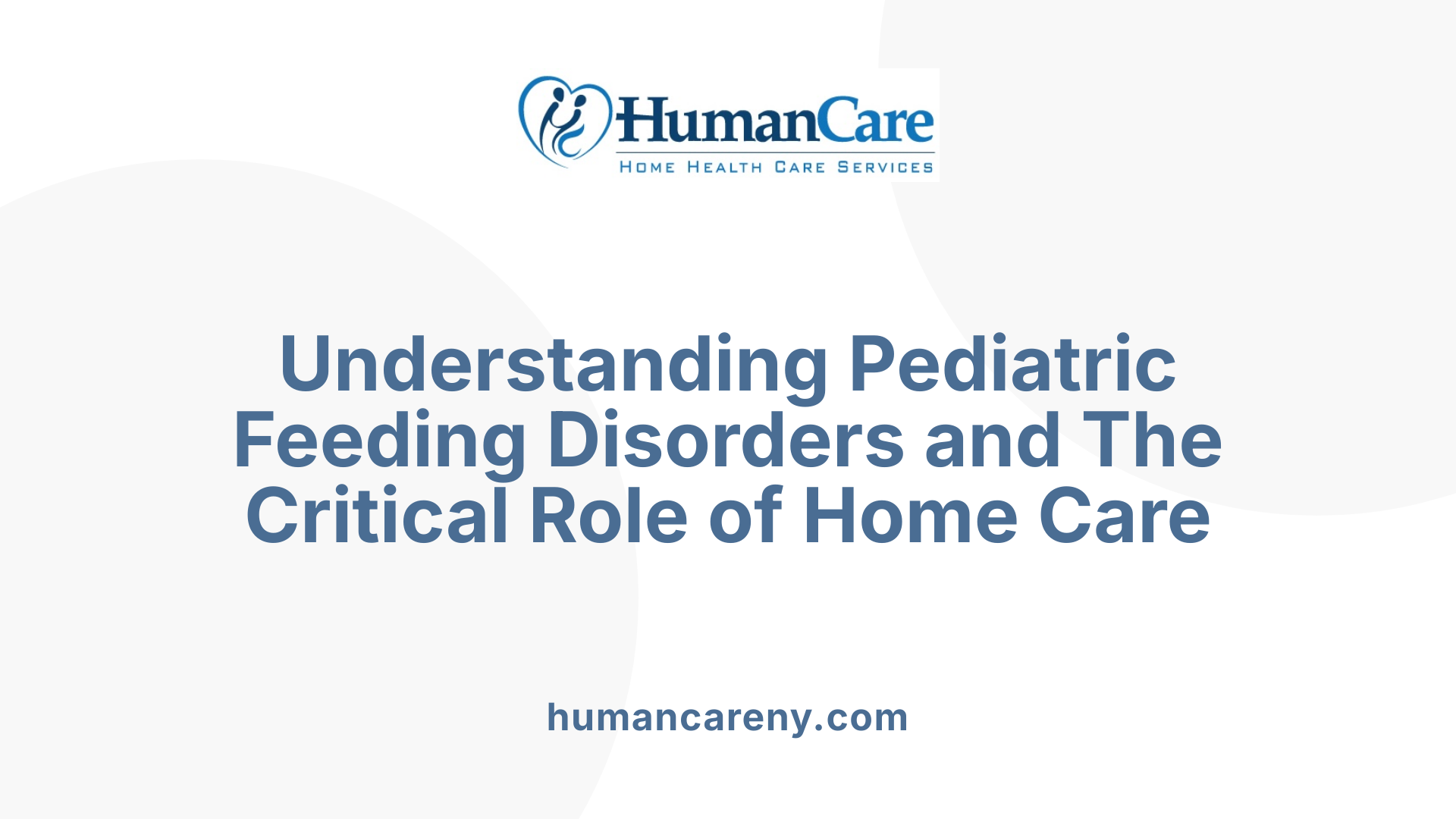
What are pediatric feeding disorders and which children are at high risk?
Pediatric feeding disorders involve severe and persistent problems with feeding, often caused by a blend of biological, psychological, and social factors. These challenges disrupt proper nutritional intake and may lead to reliance on feeding tubes to ensure adequate growth and development.
Children especially vulnerable are those with complex medical histories, such as respiratory, cardiac, or gastrointestinal conditions. Up to 70 percent of these children experience chronic feeding difficulties that interfere with their nutrition and overall health.
Role of feeding tubes in supporting growth and development
Feeding tubes play a critical role in pediatric feeding disorders by providing essential nutrients when oral intake is insufficient. They help maintain growth and development while treatment aims to improve oral feeding skills and eventual tube independence.
Importance of multidisciplinary approach
Effective treatment requires a multidisciplinary team including psychology, medicine, nutrition, speech-language pathology, and occupational therapy. This coordinated approach addresses the behavioral, organic, dietary, and oral-motor challenges experienced by children.
Such teams develop individualized interventions focusing on improving oral intake, mealtime behaviors, and supporting caregivers. Active caregiver involvement and structured training enhance treatment generalization into the home setting.
This comprehensive management fosters positive feeding relationships and constructive parent-child interactions crucial for long-term success.
Multidisciplinary Treatment: A Cornerstone of Effective Pediatric Feeding Disorder Care

What does multidisciplinary treatment for pediatric feeding disorders entail?
Multidisciplinary treatment for pediatric feeding disorders involves a coordinated team approach. Specialists such as psychologists, physicians, nutritionists, speech-language pathologists, and occupational therapists collaborate to address the diverse challenges children face. This comprehensive strategy targets behavioral issues, organic medical conditions, dietary needs, and oral-motor skills essential for feeding.
Components of multidisciplinary teams
These teams bring together expertise to tailor interventions that fit each child's unique situation. Psychology focuses on behavioral management, medicine on underlying health problems, nutrition ensures proper dietary intake, speech-language pathology targets swallowing and feeding mechanics, and occupational therapy supports motor skills needed for eating.
Treatment goals including increased oral intake and improved behaviors
The primary objectives are to enhance the child's oral intake and establish positive mealtime behaviors. Treatment aims to decrease reliance on feeding tubes by encouraging safe and effective eating by mouth. Success is also measured in improved mealtime interactions and noticeably reduced stress levels for caregivers.
Behavioral approaches to mealtime challenges
Structured behavioral techniques are vital for managing difficulties such as food refusal and tantrums. These may include establishing consistent mealtime routines, reinforcing desired behaviors, and gradually introducing new foods to broaden dietary variety.
Caregiver involvement and training
Active participation of caregivers is crucial. They receive training to implement and generalize treatment strategies at home, supported by formal discharge plans and outpatient follow-up. This involvement strengthens the parent-child relationship during meals and promotes sustainable progress in feeding skills.
Advantages of Pediatric Home Care for Children with Feeding Tubes

How does pediatric home care benefit children with feeding tubes?
Pediatric home care offers several important benefits for children who rely on feeding tubes. Thanks to advances in modern technology, many complex treatments once requiring lengthy hospital stays can now be managed effectively at home. This approach helps reduce hospital admissions, allowing children to receive continuous, personalized care in a familiar and comfortable environment.
Reducing hospital stays through modern technology
Home care programs utilize advanced medical equipment such as ventilators and feeding devices, enabling safe and proper management of complex health needs outside the hospital setting. This decreases exposure to hospital-related stress and infections while promoting family bonding.
Comprehensive services provided at home
Pediatric home health care encompasses an array of services tailored to each child’s needs. These include skilled nursing, feeding tube management and nutrition support, medication administration, speech and occupational therapies, wound care, and family education. Multidisciplinary teams coordinate care under pediatrician leadership to ensure seamless service delivery.
Creating a safer and more comfortable environment
Children with feeding tubes and other medical complexities thrive in home settings that reduce the risk of hospital-acquired complications. The personalized care plans support improved oral intake, mealtime behaviors, and emotional well-being, fostering healthier parent-child interactions during meals.
Role of pediatric home health agencies like BrightStar Care
Specialized agencies such as BrightStar Care offer well-trained nurses experienced in managing feeding tubes and complex medical equipment. They also provide essential family-centered support, including caregiver training and emergency response preparedness. These agencies act as advocates, helping families access available state programs and insurance resources to support their child’s care needs.
Family-Centered Support and Caregiver Empowerment in Pediatric Home Care
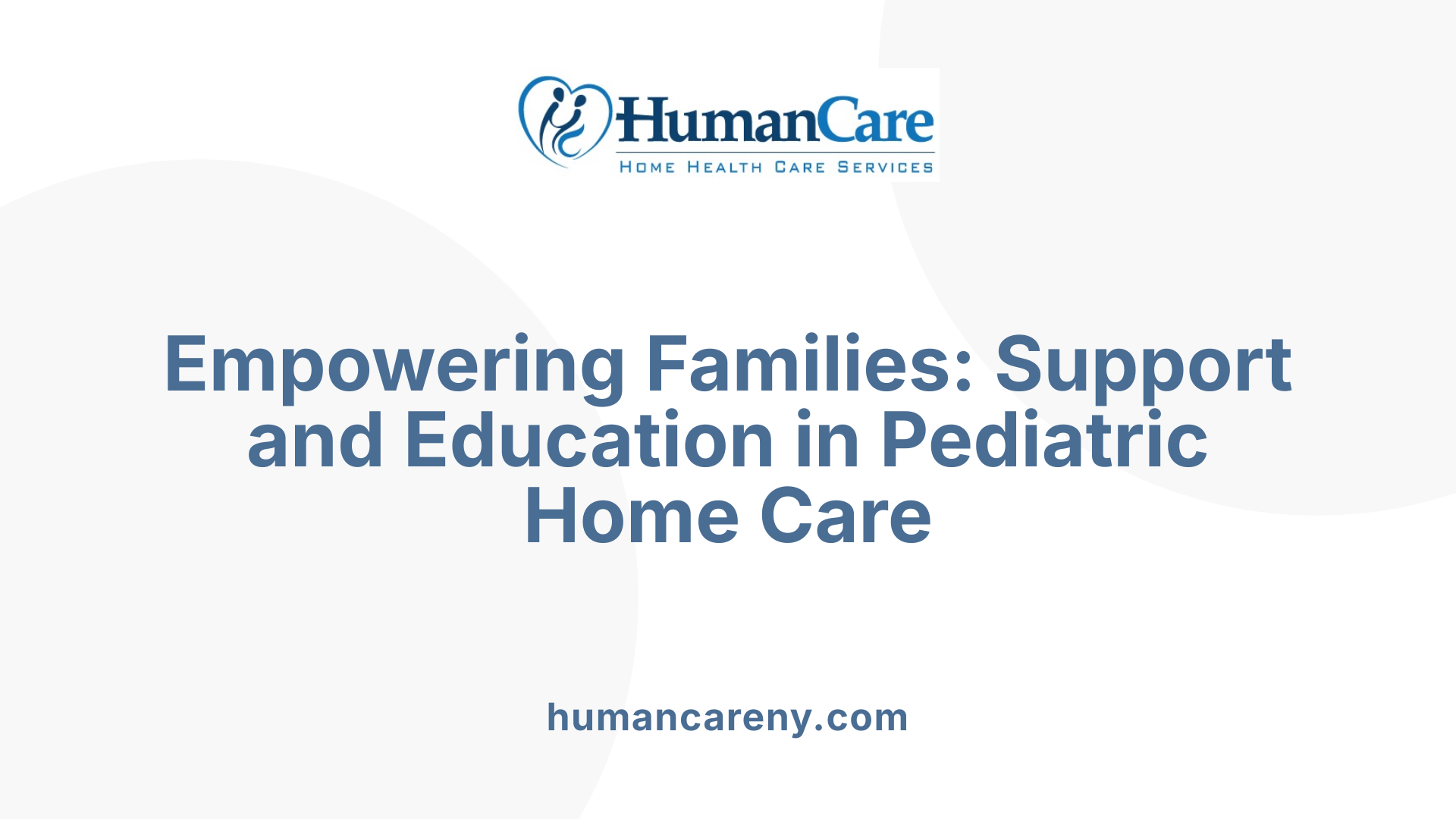
What role do families play in pediatric home care for children with feeding tubes?
Families and caregivers are central to effective pediatric home care, especially for children requiring feeding tubes. They actively participate in learning and performing medical procedures, such as feeding tube management and emergency response protocols. This hands-on involvement ensures that care is consistent and tailored to the child’s needs, even outside of clinical settings.
Education is ongoing, with healthcare teams providing continuous communication and support to caregivers. This partnership builds caregiver confidence and helps address challenges promptly, which is essential for managing complex medical conditions at home.
How does support and education reduce caregiver stress?
Comprehensive family-centered training and support significantly lessen caregiver stress. When caregivers are well-informed and equipped, they can handle medical routines more effectively and feel empowered rather than overwhelmed. This approach improves mealtime behaviors and overall family dynamics, contributing to better outcomes for the child.
What financial and medical support programs assist families?
Several government programs help ease the burden on families caring for medically complex children at home. Programs such as Supplemental Security Income (SSI), Community Care Program (CCP), and Medicaid Developmental Child Program (MDCP) provide crucial financial assistance and access to medical services. These resources enable families to obtain the necessary equipment, healthcare services, and therapies required for their child’s wellbeing.
Together, these elements foster a supportive home care environment where children with feeding tubes can thrive and families feel empowered and connected to their healthcare teams.
Coordinated Care and Advocacy: Ensuring Effective Pediatric Home Health Management
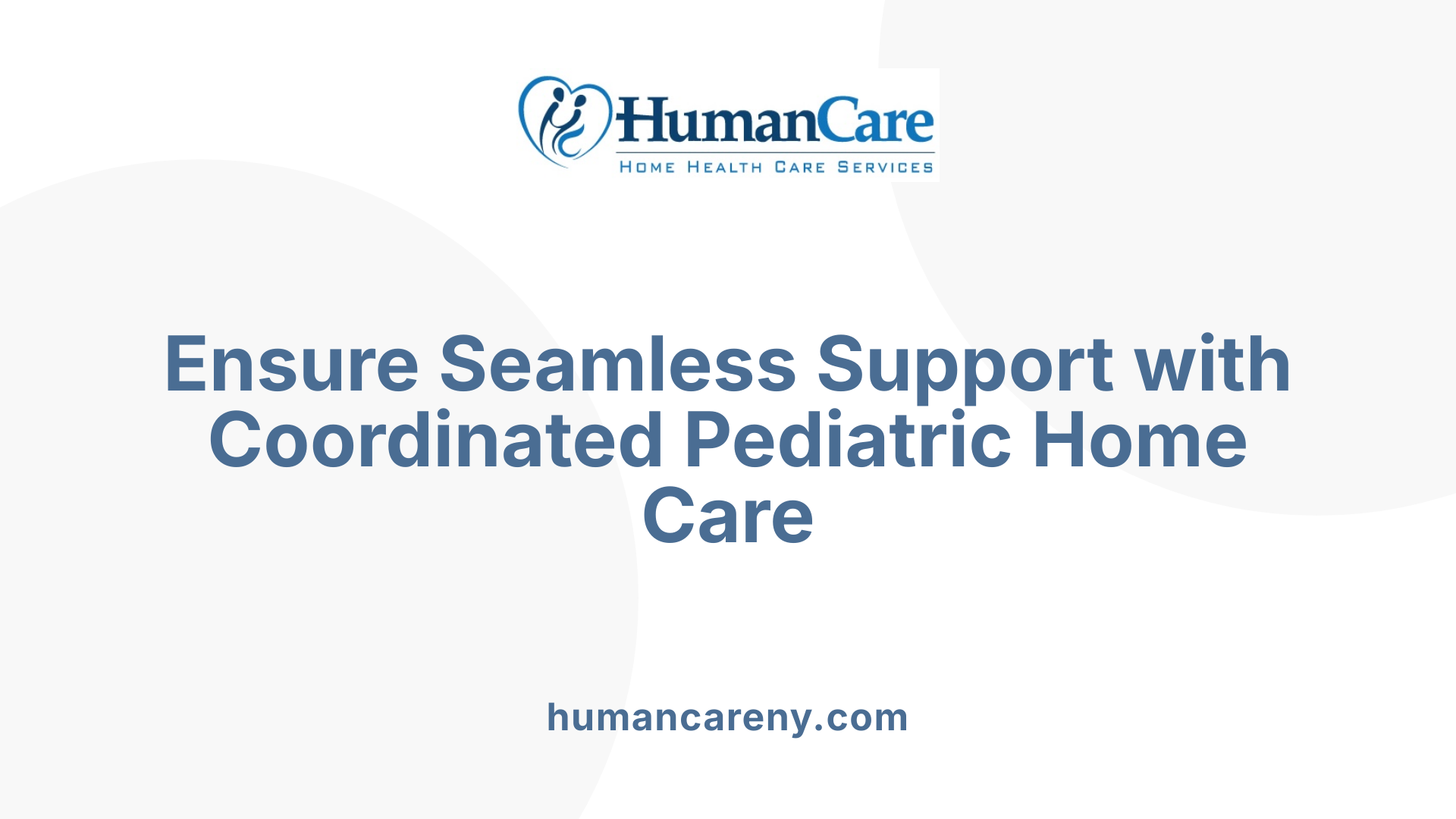
How is pediatric home care coordinated and what supports advocacy for families?
Pediatric home care is typically led by a pediatrician who plays a central role in managing and coordinating the various aspects of care. This medical professional provides direct care to the child, oversees a multidisciplinary team, prescribes necessary treatments, and acts as a strong advocate for the child’s insurance coverage and overall care management.
The multidisciplinary team often includes registered nurses, speech therapists, occupational therapists, social workers, and other specialized healthcare providers. This collaborative approach ensures that all facets of a child's complex medical needs—ranging from feeding support to mobility assistance—are addressed in a comprehensive and personalized manner.
Detailed documentation of a child's diagnoses and behaviors is crucial in this process. It helps healthcare providers predict which children will most benefit from intensive interventions and develop tailored treatment plans that address specific challenges. These treatment plans are carefully designed with input from families, emphasizing structured training for caregivers to generalize treatment at home.
Families are encouraged to actively advocate for their children. This includes asking questions about treatment options, thoroughly understanding care plans, and exploring available resources such as Medicaid waivers and government programs to assist with financial and medical support.
Planning a smooth transition from hospital to home care is another essential aspect. Parents and caregivers should work closely with the child's physician and hospital care coordinators to create formal discharge plans with outpatient follow-up. This coordinated effort ensures continuity of care and reduces the risk of complications after leaving the hospital.
By combining professional coordination with active family advocacy, pediatric home health management can effectively support children with complex medical needs in a safe, supportive, and personalized environment.
The Future of Pediatric Feeding Disorder Care at Home
Pediatric home care offers a sophisticated, supportive framework that enhances the quality of life for children with feeding tubes and their families. Through intensive multidisciplinary treatment, active family engagement, and coordinated care led by dedicated pediatricians and home health teams, children with complex medical needs can thrive in the comfort and safety of their homes. Continued advancements in home care services, along with advocacy and resource support, promise even greater outcomes, helping families navigate challenges and fostering healthy development beyond the clinical setting.

